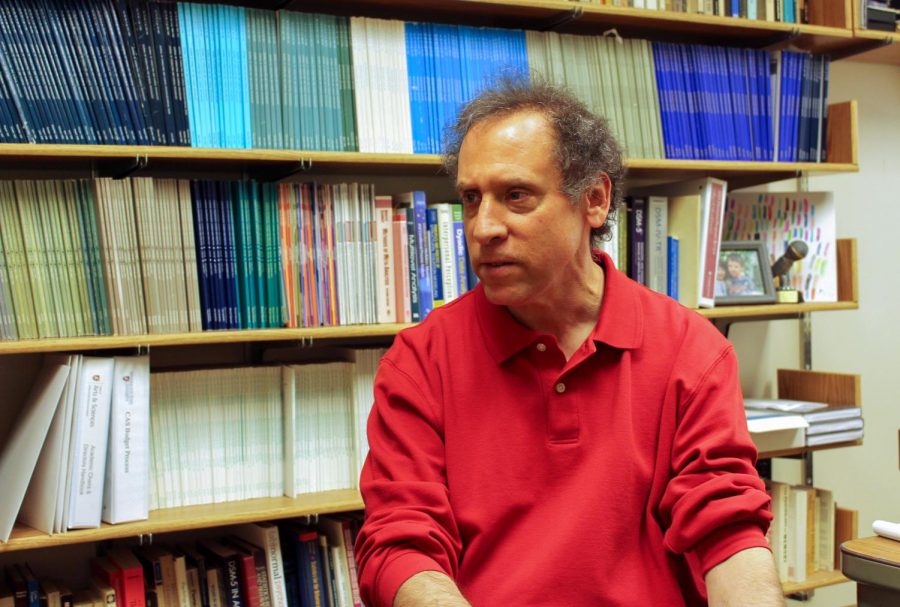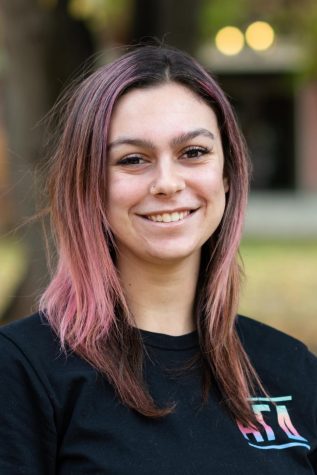WSU psychologist receives honor from APA
Recipient is editor of group dynamics work, studies psychopathy
CHRISTIE HOIUM | THE DAILY EVERGREEN
David Marcus, psychology department chair, talks about receiving the APA Group Psychologist of the Year award for the “Group Dynamics: Theory, Research and Practice” journal Monday at Johnson Tower.
September 25, 2018
A psychology professor at WSU was named Group Psychologist of the Year by the American Psychological Association at a convention in San Francisco in August.
David Marcus, professor and chair of the psychology department, believes he was given the honor because he is an editor of the journal the division is responsible for, “Group Dynamics: Theory, Research and Practice.”
Marcus was chosen for Division 49, the Group Psychology division, which includes group therapists and people who study group therapy, he said.
However, he said there is not a strong emphasis on group psychology or group therapy within the WSU psychology department.
“It’s kind of ironic because there’s two of us here at WSU who’ve won this award and who are very active in the division,” he said.
He has done group research focusing on how people perceive each other in groups. He also has done research on groups such as juries, fraternities and sororities.
Along with being the department chair, Marcus teaches graduate classes on adult psychotherapy and adult psychopathology. He also does research and mentors graduate students. Next semester he will be teaching an undergraduate class on law and psychology for the first time.
Since he has been at WSU, Marcus has also done research unrelated to groups. He has studied psychopathy and people who engage in problem behavior, Marcus said.
He has worked on a group study with fraternities and sororities at WSU where group members self-reported their psychopathic personality traits. He used that information to see how their answers related to the way they were seen by other members in their fraternities and sororities. Behaviors such as cheating in school or on intimate partners and illicit drug use were examined during the group study, he said.
“People higher in a lot of these psychopathic traits were seen by other members of their fraternities and sororities as engaging in more of these problem behaviors,” Marcus said.
There are no courses within the graduate program that cover group psychology. There are also no undergraduate courses about group psychology, but it is briefly covered in the social psychology course, Marcus said.
Craig Parks, a past recipient of the group psychologist award, now works in the Office of the Provost.
“While we have a couple of people who have been very involved in the division,” Marcus said, “this would not necessarily be the place to do graduate work if your main interest is group [psychology].”










